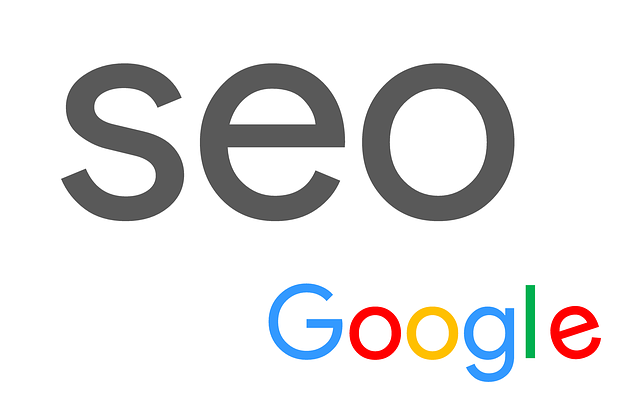In today's digital world, Sustainable SEO uses ethical White-Hat SEO Techniques to enhance online visibility while minimizing environmental impact. By focusing on user intent, high-quality content, and natural backlinks, businesses contribute to a transparent digital ecosystem that benefits both consumers and the planet. These techniques include optimizing website structure, creating unique content, building strategic partnerships, and avoiding harmful black-hat practices. For environmental websites, this means targeting specific nature-related keywords, producing engaging content, and utilizing diverse media formats. Technical SEO optimization, ethical link building (Green alternatives), local SEO strategies, and KPI tracking are also crucial components of Sustainable SEO to ensure long-term success and a greener digital future.
In today’s digital landscape, businesses are increasingly recognizing the importance of sustainability beyond their physical operations. Sustainable SEO Solutions explores the intersection of environmental consciousness and online visibility. This article delves into effective strategies that align digital marketing with ecological principles. From adopting ethical practices like White-Hat SEO Techniques to optimizing content and building backlinks responsibly, we uncover a holistic approach to enhance search rankings while promoting eco-friendly values.
Understanding Sustainable SEO: The Green Approach to Digital Marketing

In today’s digital era, Sustainable SEO emerges as a responsible and eco-conscious approach to digital marketing. It focuses on using White-Hat SEO Techniques that prioritize ethical practices and long-term benefits rather than quick fixes or black-hat strategies. By embracing sustainability, businesses can enhance their online visibility while minimizing environmental impact, ensuring a greener future for both the industry and the planet.
This green approach involves implementing various strategies such as optimizing content for user intent, building high-quality backlinks, and creating valuable resources that offer genuine value to consumers. These practices not only help search engines understand and rank websites better but also contribute to a more transparent and trustworthy online environment. Embracing Sustainable SEO is a step towards fostering a healthier digital ecosystem that benefits both businesses and the global community.
White-Hat SEO: Unveiling Ethical Strategies for Long-Term Success

White-Hat SEO Techniques represent a set of ethical strategies that prioritize long-term success over quick wins. These methods focus on providing value to users and search engines alike, ensuring that websites remain relevant and reliable in the eyes of both audiences. By avoiding black-hat tactics such as keyword stuffing or link farming, white-hat SEO fosters a genuine connection between content and its audience, leading to higher user engagement and satisfaction.
Such techniques include creating high-quality, unique content that resonates with readers, optimizing website structure for better navigation and crawlability, and building natural backlinks through strategic partnerships and excellent user experience. These efforts not only enhance search engine rankings but also contribute to the overall health of the digital ecosystem by promoting fair competition and maintaining the integrity of online information.
Keyword Research: Finding Eco-Friendly Terms for Environmental Sites

When it comes to creating content for environmental or eco-friendly websites, finding the right keywords is crucial using sustainable SEO solutions. The key lies in employing White-Hat SEO Techniques to uncover relevant terms that reflect both searcher intent and your site’s focus on sustainability. Instead of generic words, focus on specific, nature-related phrases like “eco-conscious consumers,” “sustainable living tips,” or “green energy solutions.” These not only attract the right audience but also enhance your site’s credibility within the domain.
Utilizing tools that support long-tail keyword research can be immensely helpful. By targeting longer, more specific terms, you can avoid the competitive battle of mainstream keywords and instead capture a dedicated audience genuinely interested in environmental issues. This strategy ensures that your content not only ranks well but also resonates with readers who share the site’s values, fostering a stronger connection between the brand and its audience.
Content Creation: Crafting Informative and Eco-Conscious Material

Content Creation plays a pivotal role in Sustainable SEO, aligning with White-Hat SEO Techniques to drive organic growth while promoting environmental awareness. Eco-conscious content creators are crafting informative articles, blog posts, and multimedia that not only engage audiences but also offer practical insights into sustainable living, renewable energy solutions, and eco-friendly practices. By integrating keywords naturally and focusing on quality over quantity, these creators enhance search engine rankings while appealing to a growing number of consumers conscious about their digital footprint.
This approach involves meticulous research to understand audience needs and trends in the green industry, ensuring content relevance and accuracy. Additionally, incorporating diverse media formats, such as infographics and videos, enhances user experience, encouraging longer engagement times and lower bounce rates – key factors that search engines consider when ranking websites. Thus, by adopting White-Hat SEO strategies in content creation, businesses can effectively communicate their sustainability efforts while attracting an audience that prioritizes eco-friendly choices.
Technical SEO Optimization: Building a Solid Foundation for Sustainability

Sustainable SEO begins with a robust Technical SEO Optimization strategy, serving as the bedrock for long-term success and environmental friendliness. Implementing White-Hat SEO Techniques ensures your website operates efficiently, enhances user experience, and aligns with search engine guidelines. This includes optimizing site speed through efficient coding practices, ensuring mobile responsiveness to cater to diverse users, and structuring data in a way that’s easily interpretable by both search engines and visitors.
A well-optimized technical foundation enables better crawling and indexing, facilitating search engines’ understanding of your content. This results in improved visibility, reduced bounce rates, and increased time spent on-site—all indicators of quality SEO that contribute to both business growth and environmental sustainability by minimizing resource-intensive operations associated with low-ranking or poorly designed websites.
Link Building: Green Ways to Earn Quality Backlinks

Link building is an essential part of any SEO strategy, but traditional methods often involve practices that can be detrimental to the environment and search engine algorithms. Sustainable SEO advocates for ethical and eco-friendly approaches, ensuring long-term benefits while protecting online ecosystems. Instead of employing Black-Hat tactics like buying links or engaging in spammy practices, consider these Green alternatives to earn quality backlinks.
White-Hat SEO Techniques offer a myriad of options. You can collaborate with industry influencers or reputable organizations to create mutually beneficial partnerships. Guest blogging on popular, relevant websites is another effective strategy, as it allows you to contribute valuable content while gaining exposure and backlinks. Additionally, creating informative infographics or hosting virtual events can attract natural links from other sites, showcasing your expertise and fostering online communities.
Local SEO: Targeting Eco-Aware Communities and Businesses

Local SEO is a powerful strategy for businesses aiming to embrace sustainability and appeal to eco-conscious consumers. By focusing on local search optimization, companies can enhance their visibility within specific communities that prioritize environmental initiatives. Utilizing White-Hat SEO Techniques, such as optimizing for location-based keywords, engaging in local business listings, and building partnerships with green organizations, allows businesses to connect with the right audience. This approach ensures that eco-aware customers can easily discover and support sustainable practices locally.
Through effective Local SEO strategies, businesses can establish themselves as responsible contributors to their communities. By targeting the right keywords and creating relevant content tailored to local audiences, companies can foster trust and loyalty among environmentally conscious folks. This targeted approach not only drives local traffic but also positions the business as a respected member of the green community, encouraging further engagement and long-term success.
Measuring Impact: Evaluating the Success of Sustainable SEO Practices

Measuring the impact of sustainable SEO practices is crucial for evaluating their success and effectiveness. It involves assessing key performance indicators (KPIs) that go beyond traditional metrics like page rank or keyword rankings. By adopting White-Hat SEO Techniques, which prioritize ethical and long-term strategies, you can track progress through factors such as organic traffic growth, user engagement, and conversion rates. These metrics provide a clearer picture of how your SEO efforts are resonating with your audience and driving business value.
Additionally, monitoring environmental impact metrics like reduced energy consumption and carbon footprint associated with your website’s operations becomes essential. Integrating eco-friendly practices into your SEO strategy not only benefits the planet but also enhances your brand’s reputation among environmentally conscious users. Regularly analyzing these data points allows for informed decisions, ensuring that your sustainable SEO initiatives remain on track and contribute to a greener digital landscape.
